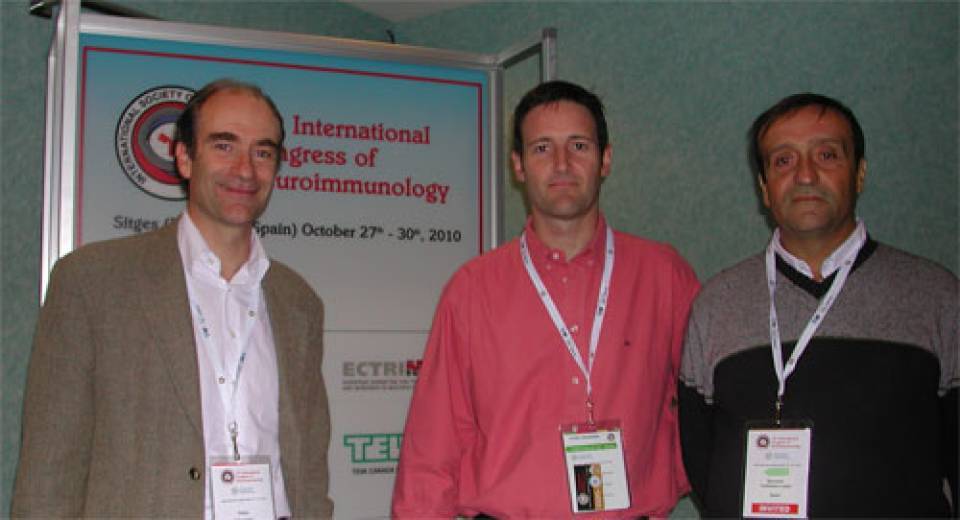Multiple Sclerosis is one of the most well known study area of Neuroimmunology. This autoimmune disease causes demyelination of neurons that leads to a neurodegenerative process. Recent studies of association with whole genome data have identified about 20 genes associated with susceptibility to develop the disease. Scientific community estimates that in the next 2 years there will be around 80 associated genes that will make a very accurate picture of the disease genetic basis. Systems biology, which uses computer models to analyze complex biological processes, complements these studies integrating genetic, molecular, physiological and clinical information.
The tools of high-throughput sequencing and genotyping, along with innovative brain imaging techniques that improve phenotypic characterization of the disease, combine to further define the set of involved genes. Neuroinflammation and the mediators that cause neuronal demyelination are two processes gaining interest in research. Already available drugs are being successful in the fight against neuroinflammation, and many scientists believe that when the disease is diagnosed at an early stage it will soon become a controlled disease, as has been achieved with AIDS.
Unfortunately, strategies to regenerate damaged tissue are missing. Cell therapies have been applied successfully in hemato-oncological diseases and experimental results have enabled the first clinical studies to apply treatments with different types of regenerative stem cells to Multiple Sclerosis. Pharmacogenomics is another way to improve treatments, trying to predict which patients will respond better to one treatment or another.
On the other hand, Congress is also providing data on the effects of infections and cancer in the nervous system. Some common cancers, including breast, ovarian or lung cancer, express proteins found only in the brain in normal conditions. The immune system combats tumor generating antibodies against these proteins, thus causing adverse effects in the brain when the antibodies cross the blood brain barrier. Those antibodies could cause an alteration of neuronal function leading to motor dysfunction, behavioral disorders or dementia. Identifying the cause of these neuronal dysfunctions has made possible the first treatment for a group of patients with a poor prognosis so far.
Experts will present their latest results and discuss the next steps during the Congress held in Sitges (Barcelona, Spain). It has brought together internationally renowned scientists, such as Dr. Stephen L. Hauser, from the University of California - San Francisco (UCSF) Multiple Sclerosis Center, and Dr. Josep Dalmau, from the University of Pennsylvania (Philadelphia, USA) and future IDIBAPS - Hospital Clínic of Barcelona researcher where he will join the Multiple Sclerosis Group where Dr. Pablo Villoslada, coordinator of the Congress, is already working. These and many other researchers will work in the next years to improve knowledge and efficiency in the fight against neuroimmunological diseases.
This international congress has been possible thanks to the funds recieved from the Ministry of Economy and Competitiveness (MINECO) through the project SAF2010-09238-E.

